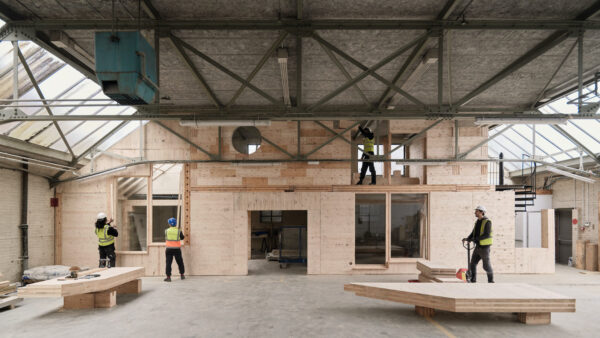Trade association Build UK has come out in unison with the CBI in calling for the government to delay the introduction of the apprenticeship levy.
Announced last week by the Department for Education (DfE), the new levy is set to come into force in 2017.
SMEs will receive 90% of the costs of employing new apprentices and all employers operating in the UK with a pay bill over £3m each year will be required to pay into the training fund 0.5% of their payroll bill minus an allowance of £15,000. Most SMEs would be able to claim funds from the levy, but would not have to pay in to it.
There will be 15 funding bands ranging from between £1,500 and an upper limit of £27,000, depending on the type of training. All existing and new apprenticeship frameworks and standards will be placed within one of these funding bands.
Build UK, which represents 27 main contractors and 11 specialist groups, has called for a delay in the introduction of the levy to provide employers with enough time to prepare, and to enable government to work with business representatives to ensure the system works effectively from the outset.
In a statement, Build UK said: “Whilst the information published by the Department for Education on the operation of the apprenticeship levy and the wider funding system is welcome, many questions remain unanswered.
“More time and clarity is needed to ensure that the new levy effectively supports apprenticeships, and to enable employers to fully understand the implications of the changes for their business. The system of funding caps also needs to reflect the higher costs of delivering construction apprenticeships.”
This echoes the viewpoint of the CBI, which has also been vocal in calling for a delay in the levy.
Speaking last week, Carolyn Fairbairn, director-general of the CBI, said: “The apprenticeship levy in its current form risks turning the clock back on recent progress through poor design and rushed timescales.
“Without a radical rethink it could damage not raise training quality. This really matters because of the crucial importance of closing the skills gap to improving the UK’s lagging productivity. The government must take time to get this right, and listen properly to the concerns and ideas of the businesses who will be doing their best to make it work.”
She added: “The April 2017 start date will not give firms sufficient time to prepare, so we urge the Government to delay implementation. Though business understands the fiscal challenges, it would be a great mistake to rush ahead before a viable scheme is ready.”
Meanwhile, others within the industry have been welcoming of the new arrangement, with Tony Howard, director of training at the Building Engineering Services Association (BESA), welcoming the proposals and calling for even greater urgency.
“We applaud the potential 90% government funding and the uplifting of STEM subject areas by 40% for level 2 apprentices and 80% for level 3 apprentices,” he said. “However, this is not approved yet and if we are to move successfully into the Trailblazers and Future Apprentices programmes we need that funding to be available now – not next year.
“If the government could accelerate the 90% funding to September, or even January, that would show real commitment to apprentice training and avoid employers delaying recruitment.”
This follows on from the Federation of Master Builders (FMB) who were also welcoming of the new levy, calling it a “fair settlement for small employers”.










